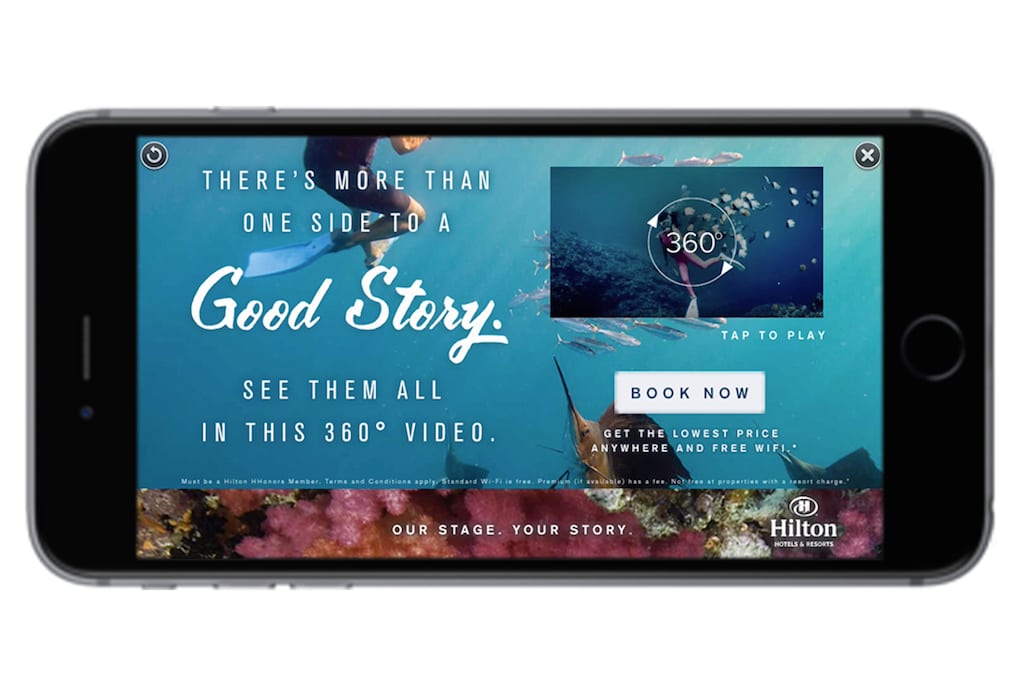Hilton Launches a New Video Ad Campaign to Push Direct Bookings

Skift Take
Many travel and tourism brands are harnessing the power of 360-degree video to inspire travelers, but this is the first time we've seen it used to convert direct bookings. It'll be interesting to see the results of this campaign by the end of this year.
Hilton Hotels & Resorts is joining a handful of travel brands that are using 360-degree travel videos to immerse consumers in a virtual-reality-lite experience that the company hopes will also translate into direct bookings.
Here's how it works: First, the mobile ad begins with a 16-second Hilton video, asking consumers, "Where will your story take you?" Once the high-definition video ad ends, a custom "end card" shows up with a link to an interactive 360-degree video, "Destination: Inspiration" that takes viewers on a "virtual vacation" to the Hilton Barbados Resort.
When a viewer rotates his or her mobile device, the video view changes to provide a full 360-degree perspective. Once a user is done viewing the 360-degree video, which contains about four minutes' worth of content, an end card appears with a "Book Now" button. Clicking on the button prompts users to enter their preferred destination, which then pulls up hotels in that area via Hilton.com's reservation system.
In line with Hilton's largest campaign to date, "Stop Clickin
